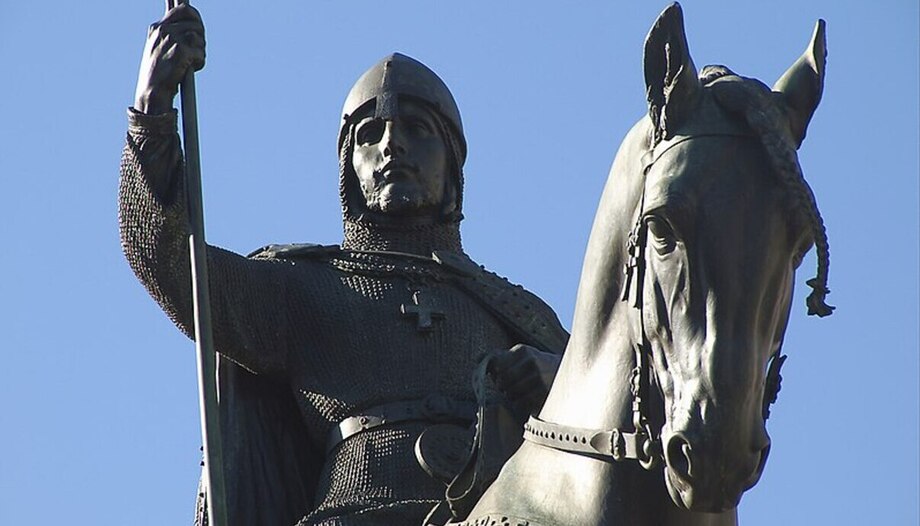 Filipov, the Czech sanctuary uniting faith and reconciliation
Filipov, the Czech sanctuary uniting faith and reconciliation New sculpture of the Virgin Mary in Prague
New sculpture of the Virgin Mary in PragueSaint Wenceslaus (born around 907 and died in 929), martyr, whose feast day is celebrated on September 28, was prince of Bohemia.
His mother, Princess Drahomira, was a pagan, so Wenceslaus' grandmother, St. Ludmila, asked to take care of the child in order to educate him in Catholicism.
His teachings seemed to bear fruit and the boy progressed in his studies at the college of Budecz, but when he was only thirteen years old, his father died, and, although Wenceslaus inherited the throne, his mother became regent. Therefore, St. Ludmila had to return the child to his mother and was subsequently murdered on her orders.
Drahomira did not stop at this murder, but began a great persecution against Christians, prohibiting public worship, destroying churches and murdering numerous Catholics.
When Wenceslaus came of age and acceded to the throne, he restored peace and brought back the exiled priests. His reign was marked by generosity and service to God. Among other things, no death penalty was carried out in his time, and he also bought pagan slaves, baptized them and then granted them freedom.
However, despite having brought order and peace back to the kingdom, his younger brother, Boleslaus, supported by other nobles, assassinated Wenceslaus at a church door on September 28, 929.
Because of the miracles performed at his tomb, Boleslaus, apparently repentant, moved his brother's body to the church of St. Vitus in Prague, which became a place of pilgrimage. He is the patron saint of the Czech Republic.
Benedict XVI on Wenceslas
During his apostolic journey in September 2009 to the Czech Republic, Pope Benedict XVI referred to St. Wenceslas during the homily of the Mass of the saint's feast dayWe are gathered around the altar this morning by the glorious memory of the martyr St. Wenceslas, whose relic I was able to venerate before Holy Mass in the basilica dedicated to him (...). This great saint, whom you are pleased to call the 'eternal' prince of the Czechs, invites us to follow Christ always and faithfully, he invites us to be saints. He himself is a model of holiness for all, especially for those who guide the destiny of communities and peoples".
Benedict XVI also commented that St. Wenceslas "had the courage to put the kingdom of heaven before the fascination of earthly power (...) As a docile disciple of the Lord, the young sovereign Wenceslas remained faithful to the evangelical teachings imparted to him by his saintly grandmother, the martyr Ludmila. Following them, even before committing himself to the construction of a peaceful coexistence within the homeland and with neighboring countries, he strove to spread the Christian faith, calling priests and building churches.
In the first Paleo-Slavic 'narrative' we read that 'he helped the ministers of God and also beautified many churches' and that 'he benefited the poor, clothed the naked, fed the hungry, welcomed pilgrims, just as the Gospel wants. He did not tolerate injustice to widows, he loved all men, whether rich or poor'. He learned from the Lord to be 'merciful and pious' and, animated by the spirit of the Gospel, he even forgave his brother, who had made an attempt on his life.
Therefore, you rightly invoke him as the 'heir' of your nation and, in a song that is well known to you, you ask him not to let it perish. Wenceslaus died a martyr for Christ. It is interesting to note that his brother Boleslaus, by killing him, succeeded in seizing the throne of Prague, but the crown which his successors then imposed on his head did not bear his name. Instead, it bears the name of Wenceslas (...). This fact is considered as a wonderful intervention of God, who never abandons his faithful (...), and the blood of the martyr did not call for hatred and revenge, but for forgiveness and peace".
The chant to which the Pope referred is the Svatý Václave ("St. Wenceslas"), a very old Czech poem, the first surviving text in which this language is used for poetic purposes. It is documented from the 13th century, although it is probably earlier. There are also carols that speak about the saint, such as Good King Wenceslauswhich narrates the king's generosity to the poor and his faith.
Pope Francis remembers the saint
The Holy Father Francis also referred to St. Wenceslaus recently, in the general audience of wednesday, september 27, 2023I cordially greet the pilgrims from the Czech Republic who have come to Rome on the occasion of the Feast of St. Wenceslas; in particular, I greet the Ondášek Children's Choir. May the example of the principal patron of the Czech nation, who was a great witness to the faith, help you to cherish your spiritual heritage and to pass it on to your children. I bless you and your families, may Jesus Christ be praised!".











